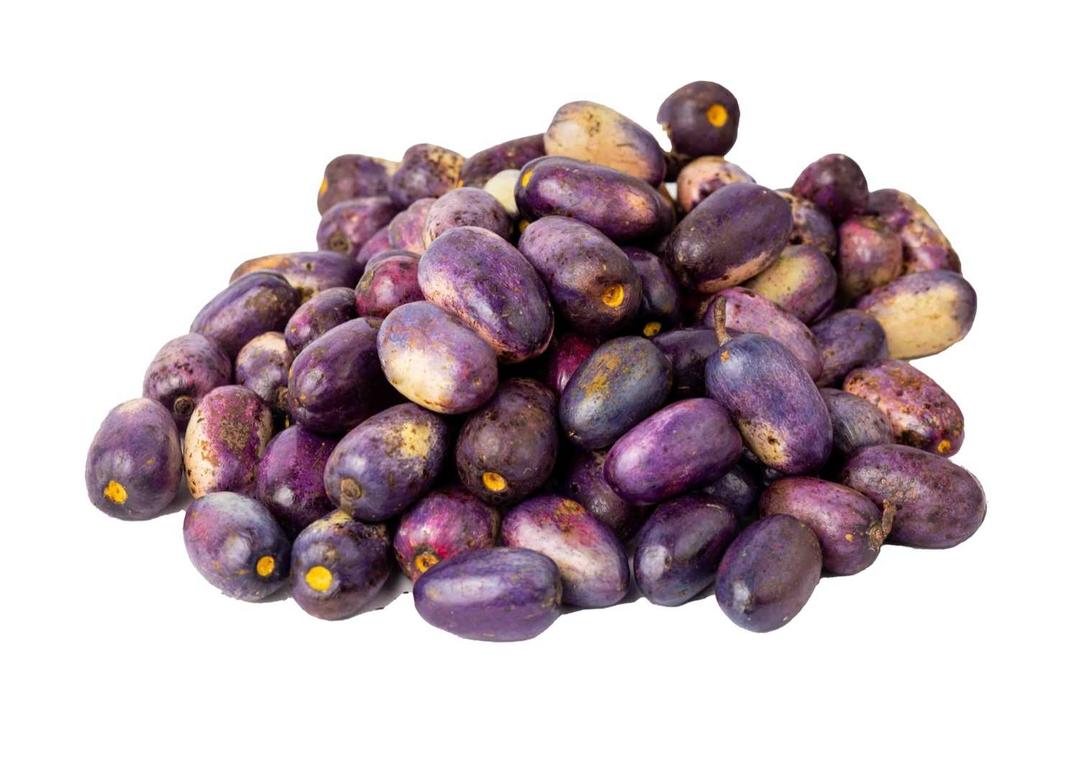Description
Origin:
African pear, also known as Ube, is native to West Africa. It is commonly grown in Nigeria and other West African countries and is widely enjoyed in local cuisines. African pear is often eaten as a snack or dessert, sometimes with a pinch of salt or pepper.
•The fruit is known for its creamy texture and rich flavor.
•Ube is also used in traditional medicine in some West African cultures.
Other Names:
•Yoruba: Elemi,
•Igbo: Ube
•Hausa: atili and Bini-Oronu.
Health Benefits:
•Rich in vitamins and minerals, including vitamins A, C, and E, which support overall health and skin.
•Contains antioxidants that help reduce oxidative stress and inflammation.
•Provides dietary fiber, which aids digestion and supports a healthy gut.
•High in healthy fats, which are beneficial for heart health.
•Supports weight management due to its fiber and healthy fat content.
Nutritional Information (per 100g):
•Calories: 128 kcal
•Carbohydrates: 22.0 g
•Sugars: 1.7 g
•Fiber: 7.0 g
•Protein: 1.0 g
•Fat: 4.5 g
•Vitamin A: 105 IU (2% of Daily Value)
•Vitamin C: 7.0 mg (12% of Daily Value)
Fun Fact: Did you Know?
The healthy fats and antioxidants (vitamin C) found in African pears help to promote skin regeneration and prevent aging.
Adding the pears as part of a healthy diet will reduce blemishes and improve skin glow.
Uses:
•Eaten fresh as a creamy, nutritious snack.
•Used in traditional dishes and stews.
•Sometimes boiled or roasted for added flavor.
•Incorporated into desserts and sweet dishes.
Recipes & Videos:
•International Recipe: Roasted Pear Dessert
Video: How to Make Roasted Pear Dessert
•Local Recipe: Nigerian Ube Recipe
Video: Nigerian Ube Recipe Video

 Cart is empty
Cart is empty 




Reviews
There are no reviews yet